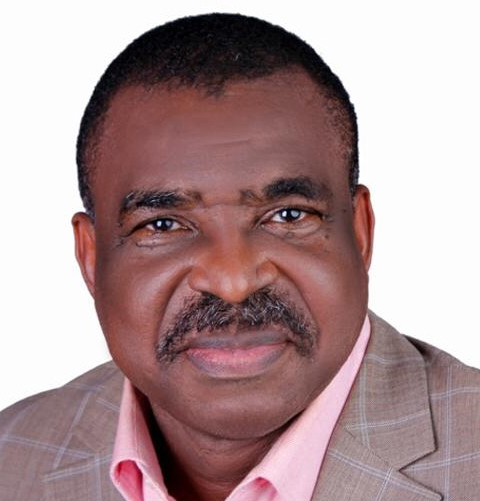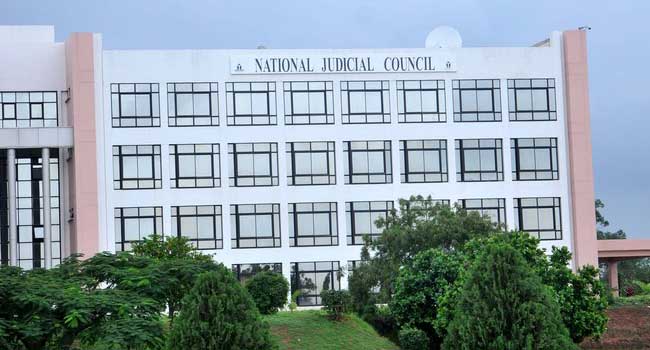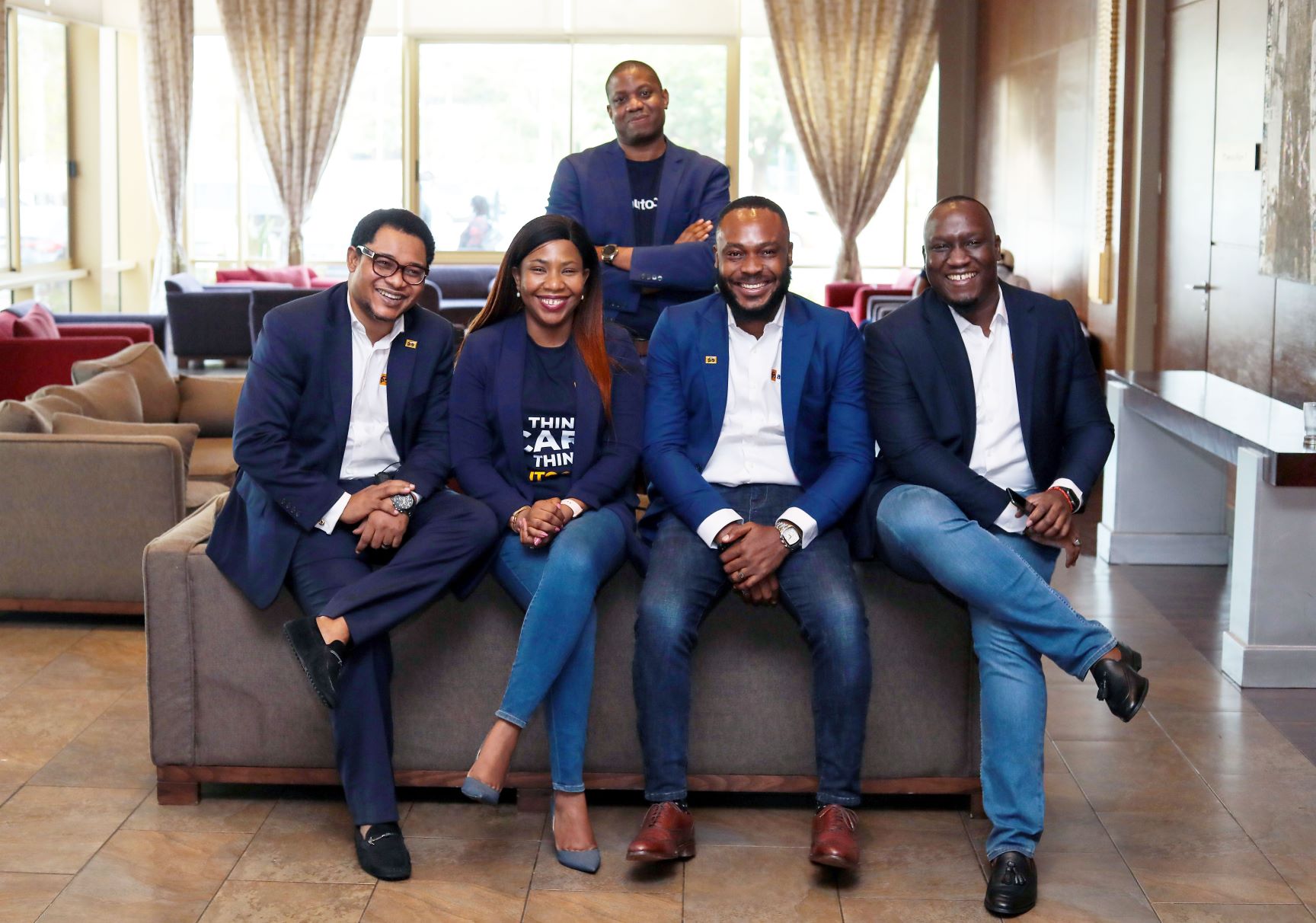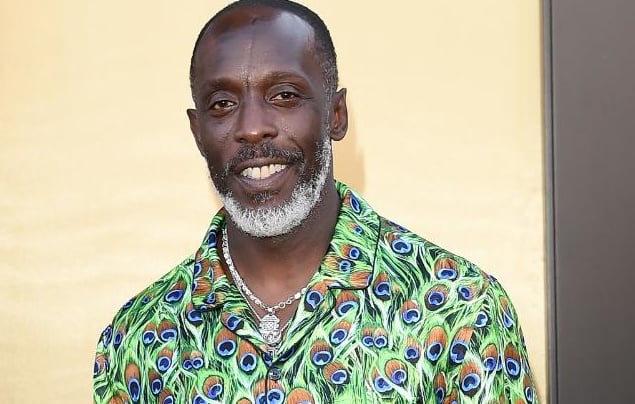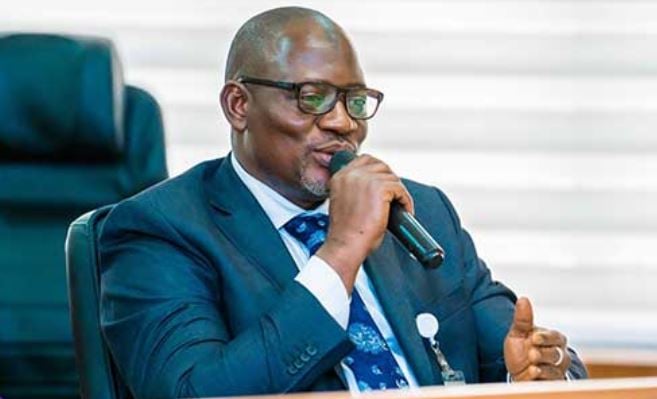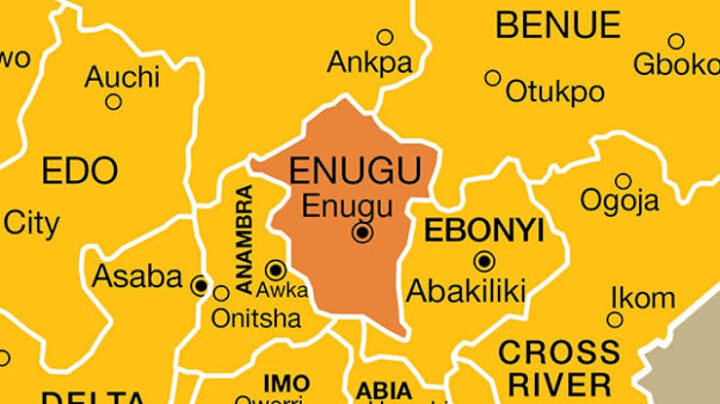While it has long been suspected by Nigerians that court judgments are often given in favour of the highest bidder, a series of embarrassing judgments by courts with concurrent jurisdictions over the tenure of the chairmanship of People’s Democratic Party, PDP, Uche Secondus has woken up from the slumber, the National Judicial Council, NJC which is the apex regulatory authority over the judiciary in Nigeria. But the NJC is only stepping up after what seems like irreparable damage to the reputation of the judiciary in Nigeria, had been done.
In his bid to halt further exposure of the country’s legal system to ridicule, last Monday, Ibrahim Tanko Mohammad, the 18th Chief Justice of Nigeria, CJN, who is the chairman of the NJC, called a meeting of all the six (6) Chief Judges in whose judicial divisions conflicts of court judgments have emanated since June.
He did so ostensibly to chastise them for the apparent aberrant behaviour and what some critics have termed judicial rascality. In my view, the CJN’s intervention amounts to medicine after death, simply because the reputational damage has already been inflicted.
The conclusion above is derived from the fact that the impression that our country’s judicial system is ensconced in corruption has already shifted from the realm of suspicion to reality. That is because even the blind, deaf, and dumb are now fully aware and believe that the conscience of some of our judicial officers seating in the temple of justice can be traded for pecuniary benefits.
Advertisement
It is the lack of integrity in the way and manner that the half a dozen judicial pronouncements made on the validity or otherwise of PDP Chairman, Uche Secondus’s tenure and the confusing court decisions regarding the authenticity of the candidates in the Anambra State gubernatorial elections coming up in November that nailed the coffin.
In other words, the legal commotion surrounding the sacking of Secondus and reinstating him repeatedly by four (4) judges across the country and the Charles Soludo, Valentine Ozigbo, and Andy Uba, respective candidates of APGA, PDP, and APC, court debacles in their party primary contests for who occupies government mansion Awka, that sealed the coffin of the erstwhile belief that the judiciary is the last hope for the common man.
Obviously, with integrity thrown to the dogs, the courts are turning out to be the architect of the disenfranchisement of the common man who would have no say in who governs him following the bastardization of democracy as the conflicting and absurd court judgments suggest that the men and women seating in the temple of justice over the referenced cases may not have passed their decisions through the crucible of truth.
Advertisement
As l had written elsewhere, democracies die when norms are eroded. And nothing can better illustrate that reality than the conflicting court judgments which not only constitute an embarrassment to the judiciary; they are another blithe on our beloved country as a whole.
That is because it reinforces the international embarrassment in which our law enforcement system is currently mired due to the opprobrium attracted to Nigeria stemming from the link between the highly decorated police officer, Deputy Commissioner of Police, Abba Kyari to the confessed internet fraudster, Hushpuppi, now in the custody of US Federal Bureau of Investigation, FBI.
It needs no reminding that compromised judiciary and law enforcement agencies in a country are key indicators for determining whether a state has failed.
I am grieved that Nigerians have been so unfortunate to have been continuously dealt a sleight of hand by not only the executive but all the three arms of government – Executive, Legislative and Judicial – since the introduction of Western-style of government in our country.
Advertisement
While there is not enough time to give the contest to the assertion above, it needs not much reminding that most Nigerians have lost confidence in all three arms of government without exception.
Hence, most of our compatriots, not just the youths, but elders as well, are currently apathetic to the manner that politics is being played. As such, they have come to the conclusion that the executive, legislative and judicial arms of government are now in cohort to kill the democratic system of governance that we fought so hard to adopt.
Allow me to start with the executive arm.
Owing to the failure of seekers and eventual occupants of Executive offices to keep to their lofty campaign promises, the electorate unsurprisingly lost confidence in that arm of government; from the president down to the governor and all the way to the local government chairman.
Advertisement
The loss of faith in public officials and government is underscored by the fact that since the founding of Nigeria in 1914 or even after independence in 1960, our political leaders have been campaigning in poetry, and governing in prose. According to Mario Cuomo, the author of the aforementioned phrase, who is a former governor of the state of New York, USA, the government should be all about delivery, not lofty promises that are seldom kept.
Unfortunately, what Cuomo railed against in his famous quote is the standard practice rather than the exception in Nigeria. And the consequences of this anomaly are that, after so many circles of promise and failure, Nigerians have become not only suspicious of promises made by politicians, but their expectation of a better future seems to have also evaporated.
Advertisement
In my judgment, what worries the critical masses of Nigerians the most is that every administration blames the preceding one for the misfortunes of the masses. They then appeal to the electorate to be given the chance to turn things around for good and vow to relieve them of the yoke placed on their necks by the authorities that they aim to upstage. Yet, whenever they are given the chance to rule, they perform worse than the previous rulers.
Take the case of the change of baton of government in Nigeria in the past six years from the PDP to the APC. Since 2015, the former opposition and ruling parties have traded places. Based on lofty promises about positive changes, Nigerians had hope for better days ahead with the opposition party that took over from the former ruling party. But six years into the journey with the new ruling party, what are Nigerians grappling with? A worse state of insecurity as reflected by massive killing, raping, and kidnapping of a magnitude never recorded in the annals of Nigerian history.
Advertisement
The horrendous level of insecurity is so stunning that apart from the alarming number of those sent untimely to the grave, UNICEF, reckons that about 1,000 innocent students are still being held captive in the forests by kidnappers who are demanding ransom from their parents and authorities.
In addition to the constant invasion of schools to steal students which started in 2014 with an estimated 300 Chibok schoolgirls kidnapped in Chibok town, in Borno state from their hostel under the watch of the former regime, (of which some of them are still in captivity) with the multiple kidnapping of students taking place since then in practically almost all the northern states, military formations have also been raided by bandits to steal arms and ammunition across the country. But the most frightening and denigrating act against the military is the recent successful invasion of the Nigerian Defence Academy, NDA, Nigeria’s premier training institution for the military.
Advertisement
That the bandits successfully breached the military facility which is supposed to be impregnable and wounded hordes, as well as killed a couple of the inhabitants, while kidnapping three people including a major in the army, speaks volumes about how perilous it is to live in Nigeria and a justification for the loss of faith in the executive arm of government that is supposed to protect the masses.
If the military that the nation has spent trillions of naira training and arming since the past 21 years of the return of multiparty democracy cannot protect its self, what hope is there for the civilian? A plethora of governors has been encouraging the besieged citizens to defend themselves. How can civilians possibly do so successfully when the bandits are taking the battle to the military in their abode and taking their members as a hostage?
The unfortunate calamity that befell the NDA is clearly a case of ‘‘physician; heal thy self’’ which is not very good optics for the nation’s military.
To be fair, there has been a lot of interventions in the agriculture sector via the Central Bank of Nigeria, CBN intervention funds for rice farming, etc. And there have also been direct money transfers to the poor via sundry social safety net processes including TradaMoni and its variants. A handful of railway lines are also being commissioned nationwide.
Apart from railways, the ongoing construction work on the second bridge across River Niger is also in progress; just as a significant network of roads is under construction across the country, courtesy of President Buhari’s administration. So by and large, under the watch of Buhari, a reasonable measure of progress has, no doubt, been chalked up with respect to social and physical infrastructure.
But the crux of the matter is that the effect of the much-vaunted accomplishments of the Buhari regime is hardly felt, positively by the masses who are mostly either in untimely graves or in Internally Displaced Persons, IDP, camps and severely poverty-stricken.
So, despite all the activities for which members of the ruling party can thumb their chests and pat themselves on the back for introducing, there has never been more wailing and gnashing of teeth in our country by bloodied and bludgeoned – if not dead – Nigerians as a result of poverty or owing to the nefarious activities of merchants of death, formerly known as religious insurgents, but currently simply known as bandits.
The new nomenclature-bandit with which the nefarious ambassadors holding Nigeria in the jugular is now tagged is derived from the blending of religious rights-related agitators with criminal elements like cattle rustlers and kidnappers who are swelling ranks of the outlaws that have laid a paralyzing siege on our beloved country.
The frightening level of the crisis of insecurity in the polity is so much so that it beats me hollow, how our leaders go to bed and have sound sleep at night, knowing that they would wake up to the news of the killing of another significant number of Nigerians under their watch.
I also marvel at how they find the courage to engage in hedonistic debauchery reflected by the high octane celebratory parties being held by the privileged class across the country at a time that majority of Nigerians are gasping for breath in our country that has literarily become a sort of Intensive Care Unit, ICU, of a war theatre.
With respect to the legislative arm of government, most Nigerians believe the 9th National Assembly, NASS is mere a rubber stamp. And they allege, perhaps justifiably, that the leadership of the hallowed chambers is not doing much to shed that negative toga.
The latest of its litany of disservice to Nigerians including the failure to make bold decisions in the previous reviews of the constitution of the Federal Republic of Nigeria is the recent failure to build on the efforts of its predecessors in bolstering the integrity of our electioneering process by allowing e-transmission of election results from polling units to INEC database.
That is even when the manual or physical transmission of election results has been identified as the weakest link and a critical point of interception by election riggers that are intent on compromising the process of electing our political leaders.
It is widely acknowledged that it is by merely shifting from manual to the electronic process of transmission of information, that has proven to be the panacea or deterrent to fraud in the private sector and the financial services arena in particular.
Adopting a similar policy and approach in the administration of political party elections could have conferred a significant level of improvement on the integrity of election results in our country.
At least, that was the intendment of the NASS committee charged with the review of the electoral act 2010 who adjudged the electronic transfer of results as an efficacious way of pulling the carpet from the feet of potential election riggers.
Shockingly, by the time the recommendations were put to a vote by the lawmakers in the full glare of Nigerians, legislators, mainly from the majority and the ruling party, who apparently don’t really care about the integrity of elections, thought otherwise; and they killed the initiative by voting that the Independent Electoral Commission, INEC, should be subject to the dictates of the NASS and the presidency, particularly with respect to the transmission of election results.
By omission or commission, the clause stipulating deference to the NASS or the presidency for the decision on whether or not election results should be transmitted electronically strips INEC of its independence. In derision of the lawmakers, one wonders why they did not go all the way to change the name of the electoral commission to reflect its new status of being dependent on their whims.
That proposition is underscored by the fact that if the independence of the electioneering agency has been removed, INEC should be renamed National Electoral Commission, NEC, which it would actually become. That is in the event that President Buhari concurs with the legislators and appends his signature to the obnoxious act that may guide the process of electing the new leadership of our country in 2023.
Now, if one takes a cursory look at the state of the judiciary which is the main subject of this essay, it would be difficult to reconcile it with the fact that it used to be touted as the bastion of democracy and the last hope for the common man.
It is astonishing and stomach-churning that the prevailing justice system has become so weaponized against the critical mass of Nigerians via the subverting of their interests by their weird rulings.
And the gale of conflicting judgments granted for ex-parte applications by courts of the same coordinate jurisdictions that are currently trending is a validation of the reality that our courts may no longer be the hallowed chambers of justice that they used to be. Rather, they are now trading floors for the highest bidder for justice.
In not too distant past, it was not unusual to see political strategists plan for the election campaign of their clients by making financial provisions for the procurement of judgment via bribe to judges, fees to a highly connected Senior Advocate of Nigeria, SAN, members of the security forces and INEC officials as well as thugs.
Often, financial allocations for publicity via newspaper, radio, or television and social media campaigns are minuscule or non-existent in the plans of the campaigns. In making the plans, the masses that are supposed to vote for their preferred candidates are bypassed, with no provision for even ‘stomach infrastructure’ – the terminology used to characterize the usual voters-inducing gifts such as bags of rice, salt, vegetable oil offered to voters as a bribe for their votes.
In the current situation, what politicians used to set aside for the hoi polloi is now being diverted to the courts. Unfortunately, this constitutes double jeopardy for Nigerian masses whose expressed will via ballots is being undermined by the law courts which used to be touted as the last hope of the common man.
The scenario described above is believed to be one of the reasons most Nigerians believe votes don’t count anymore in Nigeria and reflect the voter apathy being recorded in recent elections.
For a Democracy enthusiast and advocate like me, the situation whereby the judiciary via the courts rather than the masses through the ballot boxes, are the determinants of who governs them, presently the norm rather than the exception is not only finger wringing, but also gut-wrenching. And l believe fellow Nigerians with a conscience are equally disturbed if not traumatized by the absurd reality. It is stunning how a seemingly innocuous judicial aberration which started in Kogi and spread to Imo State in the current dispensation has quickly evolved into a phenomenon.
To conclude this piece, allow me to reproduce an excerpt from an opinion article that l had written and published widely over a year ago on both online and traditional media platforms.
It is titled “How Democracies Die: Nigeria As A Case Study.”
I had argued in that piece that
“The deepest wound inflicted on multiparty democracy that our country has been actively practicing for about 20 years, is the damning vote of no confidence by the Nigerian Bar Association, NBA, the umbrella body of lawyers in our country.
In its end of the year 2018 report, it delivered a scathing verdict on the government in power for abuse of human rights, and disregard for rule of law under the watch of the incumbent president, Muhammadu Buhari.
The umbrella body of lawyers was only affirming the position of most civil society organizations, the 8th National Assembly, NASS, legal luminaries, and the likes.
To be fair, before the advent of APC as the ruling party at the national level in 2015, during the watch of the PDP under President Olusegun Obasanjo (1999-2007) some principles of democracy were also denigrated. It was Obasanjo that referred to elections as do or die affair. He acted out the role of an army general in battle in the 2003/7 elections that gave him a second term in 2015 and also aided the election of his successor, late Umar Yar’Adua in 2007.
Being the epitome of justice and equity that he is, after being sworn into office, Yar’Adua acknowledged the perfidy and promised to improve on the jaundiced electoral process and kept the promise by setting up the Justice Lawal Uwais committee to review the process of electioneering in Nigeria. It is upon that solid democratic foundation laid under Yar’Adua’s watch and nurtured during Goodluck Jonathan’s administration that facilitated the sturdiness of a democratic platform robust enough for the emergence of the candidate of the opposition party as the president.
During the administration of President Olusegun Obasanjo, OBJ, he demonstrated his disdain for the rule of law and due process when the federal government revenue allocation to Lagos state was illegally withheld as a consequence of the state government unilaterally creating additional local development authorities. Even if the matter was adjudicated upon in the law courts and the ruling was in favour of the Lagos State government, Obasanjo obstinately disregarded the ruling.
Also, the massacre of civilians in Odi, Bayelsa State, and Zaki Biam in Benue State as reprisal actions against them for allegedly being complicit in the killing of some policemen on security duties in the aforementioned locations are evidence of Obasanjo‘s penchant to fall back on his military instincts as a governance tool.
Those crimes against humanity allegedly authorized by the presidency under OBJ’s watch are just a snapshot of the practices that are sacrilegious to democracy for which some human rights activists aver that they would approach the United Nations human rights courts for justice for the victims.
Whereas OBJ’s autocratic approach to governance trifled the rule of law particularly through the disobedience of court orders which threatened democracy and therefore sounded the death knell for democracy at least 15 years ago, some would argue that the incumbent President, Muhammadu Buhari’s disdain for the rule of law as evidenced by the emasculation of the judiciary, one of the three countervailing elements in a true democracy, via the trial, indictment and forced removal of the former Chief Justice of Nigeria, CJN Walter Onnoghen on corruption charges and his replacement with, a CJN more friendly to the presidency is unparalleled.
Arising from the controversies surrounding the change of guard in the judicial arm of government, critics contend that the judiciary which is supposed to be the last bastion of the common man has now become pliant. That’s an allegation which the government in power contradicts and rejects by arguing that they only cleaned up the proverbial Augean stable by judging the judges deemed to have been compromised in integrity via bribe-taking, as some of them were asked to account for huge sums of money found in their bank accounts.”
Clearly, the present acts of Judiciary rascality popping up in multiple locations across the country are manifestations of the act of perfidy perpetrated a couple of years ago by disrupting the order in the judiciary.
To be fair to OBJ, under his watch, he did not manipulate the courts or compromise the judiciary system. The assessment above is underscored by the fact that he was ruled against by the courts when he faced off with the Niger delta states over the issue of resource control and oil onshore-offshore dichotomy, and the courts also did not kowtow when he squared up with Lagos state government by railing against then Governor Bola Tinubu’s unilateral decision to create additional local government areas ostensibly to ease administrative challenges.
Without any consequences on the judiciary, OBJ lost the case in court to Lagos state government with no repercussions to the judges. But that has not been the case under the current regime that is believed to have brow beaten the judiciary into submission with a view to getting the third arm of government that should check the excesses of the executive and legislative arms through legal adjudications to align with it.
Keeping in mind that the law of karma stipulates that man must reap what he/she sows, l will be remiss not to point out that it is the seed of the politicization of the judiciary by the forceful removal of the 17th CJN, Walter Onnoghen from the position, a couple of years ago that is currently being reaped via the brazen and incredible display of impunity by the judges that have been granting the ex-parte motions or applications that are currently causing the confusion rippling through the political firmament.
So, slowly but surely, the soul of democracy – which is the separation of three arms of government to check and balance each other – is being eroded by the very people who should preserve them.
Pardon me for being so blunt about this ugly development.
But it is simply because it is imperative that l nudge us into seeing the conflicting judgments by our courts as another death knell for democracy and a precursor to a system that we may not recognize sooner than we can imagine if we all don’t put our hands on the deck to pull back our ship of state from the stormy water in which it is currently sailing.
Firstly, by making NASS an appendage of the presidency and subsequently, the judiciary an adjunct to the presidency and a pawn in the hands of unscrupulous politicians, the system of government in practice in Nigeria has pivoted from looking like a unitary system as opposed to the federal one that we pretend to be operating.
But with the independence of the three arms of government which is the hallmark of democracy in jeopardy by being fused into one, instead of being independent of each other, the governance system in our beloved country is increasingly changing into what would be nothing less than a Frankenstein monster that would devour all of us, including the progress that we have made in the practice of democracy since the past 21 years of return to multi-party democracy.
In light of the above, I would argue that the conflicting judgments on whether or not Uche Secondus can remain in the chairmanship position of the PDP, and the confusion created by the courts in the run-up to Anambra state governorship elections are just the symptoms of the huge damage that the politicization of the judiciary via the forceful change of the CJN a couple of years ago has inflicted on politics in Nigeria.
As such, the intervention of the CJN, Ibrahim Tanko Muhamad via a meeting with the chief judges of the six (6) jurisdictions from which the conflicting judgments emanated amounts to medicine after death since the mortal blow on the image of the judiciary had been delivered by the conflicting judgments which have elicited public odium.
It is also tantamount to treating the symptoms of an ailment without dealing with the underlying illness. If the disease remains untreated, the Nigerian judiciary could become a house of commotion, and may be likened to the popular situation comedy on television in Nigeria titled ‘‘Fuji House of Commotion’’.
Expectedly, the Nigerian Bar Association, NBA under the leadership of Olumide Akpata, has expressed reservations about the sordid situation which has cast a very dark shadow on the profession of learned gentlemen (as lawyers refer to themselves) and whose image currently appears to be as stained as that of the legally and morally challenged clients that they defend in court. Already, the bench is accusing the bar of ‘forum shopping’ an act of seeking out pliant judges in jurisdictions far from home to obtain judgment. And it would not be surprising if, in the coming days, the bar responds in kind.
Nigerians are tired of finger-pointing and desire efficacious solutions.
Ideally, conferences or workshops should have been held by the judiciary to enlighten and caution the bench and bar about the risks inherent in this season of politics where the judiciary would be exposed to the manipulative tendencies of desperate politicians.
But by omission or commission, wittingly or unwittingly, the judiciary failed to take that pre-emptive measure to avoid the current mess. The consequence of that lack of proactive foresight by the leadership of the judicial arm of government to protect itself from the manipulative tendencies of the other arms of government is what is currently playing out to the dismay of the CJN and NJC.
Rather than simply agonize, the leadership of the NJC must realize that it is not too late to hold the conferences and seminars to highlight the impending challenges that are ahead in this season of politics and what needs to be done to sustain our hard-earned democracy by the judiciary.
That is one way that the courts can once again be deemed to be the last hope of the common man.
Magnus Onyibe, an entrepreneur, public policy analyst, author, development strategist, alumnus of Fletcher School of Law and Diplomacy, Tufts University, Massachusetts, USA and a former commissioner in Delta state government, sent this piece from Lagos.
